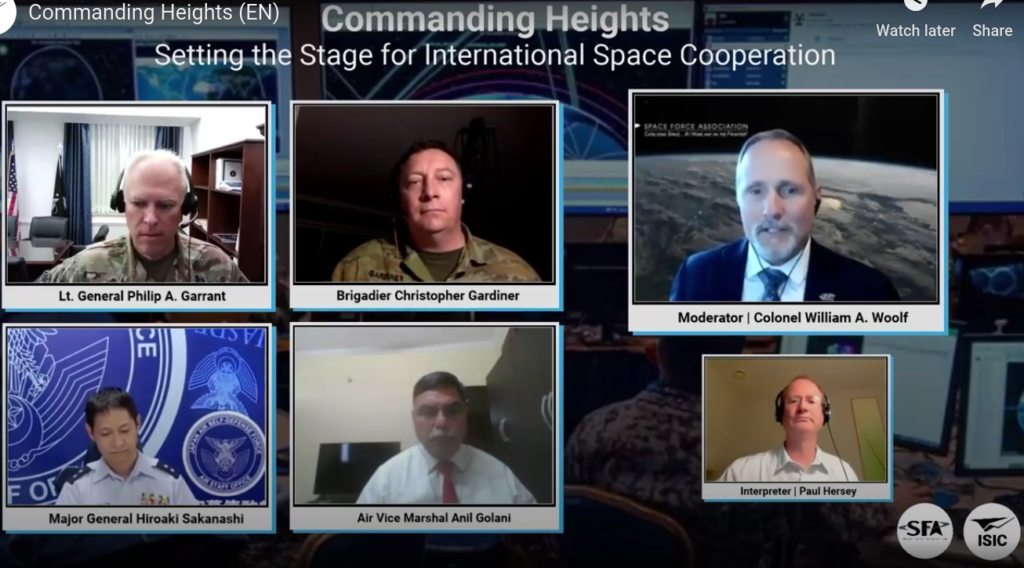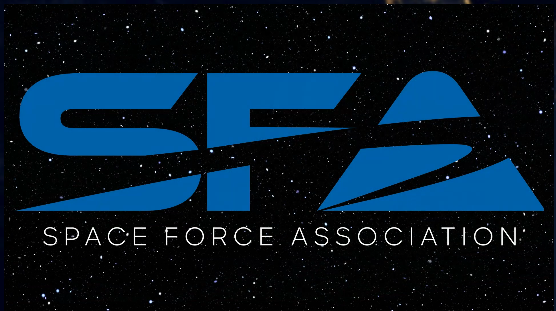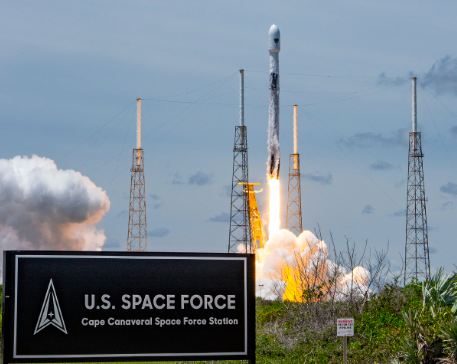By Rhonda Sheya, SFA Public Affairs
The United States has showcased the indispensability of commercial space companies for national defense. Such partnerships have ushered in remarkable technological advancements across the spectrum and demonstrate the power of public-private collaboration.
This model has helped develop member states of the Quadrilateral Security Dialogue, including Australia, India, Japan, and the United States, to foster mutual security. Cooperation in space has emerged as a critical aspect of this alliance. The International Security Industry Council (IPSIC – Japan) is leading efforts to open discussion and develop leading-edge innovation sharing between the allies of Japan, India, Australia, and the U.S. nations. The Quad is evolving into a platform for mutual security supported by a series of foundational defense agreements at the first in-person Summit in September 2021. Cooperation in space was adopted and reinforced in subsequent summits in 2022 in 2023.
Peace, Prosperity, and Stability in Space
Japan’s Major General Hiroaki Sakanashi, the Major General of the Defense and Policy department for Five, Six, and Eight Air Staff Office, commented on the importance of ISAC and collaboration, “Japan’s goal is to assure the peace, prosperity and stability and safety of the people and the country of Japan using the space domain and along with like-minded countries and allies to assure stable use of space and assure free access to space. We hope this webinar will further contribute to international cooperation in that area.”
Space Force Association (SFA) president Col. Bill Woolf (USAF, Retired) moderated this critical and timely discussion exploring private sector support from our four national security perspectives. The central question is, how can Space Forces have like-minded countries and their commercial partners learn from each other?

The webinar between these nations was held in July and highlighted the challenges and opportunities these allied space forces and their commercial partners face. The primary focus is on mutual learning and knowledge exchange, answering the central question: “How can allied space forces and their commercial partners learn from each other?”
Collaboration in Space
U.S. Space Force Lt. General Phillip A. Grant noted the importance of commercial and military collaboration between allied nations. “U.S. The Quad partnership between India, Japan, Australia, and the United States contributes to a free, open, inclusive, and resilient Indo-Pacific region. There is great potential to incorporate space commercial collaboration to bolster the Quad in our respective economies. We have seen during Putin’s unprovoked invasion of Ukraine just how important commercial space capabilities are during the contingency.” Lt. General Grant is the Deputy Chief of Space Operations for strategy plans, programs, and requirements for the U.S. Space Force at the Pentagon.
This collaborative pursuit of space exploration and national security promises to set new benchmarks in technological progress and international cooperation and was co-produced by ISIC and The Space Force Association (SFA).
“Cooperation in space has emerged as a critical aspect of this alliance.”
commented Col. Bill Woolf (USAF, Ret.)
SFA president Col. Bill Woolf (USAF, Ret.) and the webinar moderator commented, “Cooperation in space has emerged as a critical aspect of this alliance. The International Security Industry Council (IPSIC – Japan) is leading efforts to open discussion and develop leading-edge innovation sharing between the allies of Japan, India, Australia, and the U.S. nations. The Space Force Association is proud to support these efforts and actively foster commercial and allied partnerships in the space arena.”
Watch the webinar online: Commanding Heights, Setting the Stage for International Space Cooperation
Japan Aerospace Exploration Agency (JAXA), created in 2003 by merging three aerospace organizations, has primarily focused on civil missions while coordinating with the Ministry of Defense and the National Office for Space Policy. Public-private ventures with a consortium of private companies have also contributed to their endeavors. The Japan Air Self-Defense Force (JASDF) established the first Space Operations Squadron in 2020, bolstering Japan’s space capabilities.
About the participating Space Agencies
India’s renowned Indian Space Research Organization (ISRO), initially a civilian agency, has effectively coordinated the country’s military and civilian space programs since the 1960s. Recent developments include the establishment of the Defense Space Research Organization (DSRO) and the Defense Space Agency (DSA) in 2019, both playing instrumental roles in facilitating the integration of civilian space technology for military applications. Simultaneously, private space companies’ emergence fosters innovation across various domains, from research and development to satellite technology.
The Australian Space Agency (ASA), founded in 2018 under the government’s Department of Industry, Science, Energy, and Resources, is committed to civil applications. With a dedicated focus on national space security and defense, the Space Force, a component of the Royal Australian Air Force (RAAF) since January 2022, aims to cultivate a robust domestic industry with support from private investment and government initiatives like the Modern Manufacturing Initiative.
With over 700 international partners, NASA, the United States’ premier space agency, has been at the forefront of nurturing public-private ventures, including surveillance and security initiatives. The U.S. Space Force was established as the sixth military branch in 2019 to strengthen defense capabilities further. Under the newly formed Space Systems Command (SSC), private companies play a pivotal role, aided by an agile whole-of-digitalization approach.


